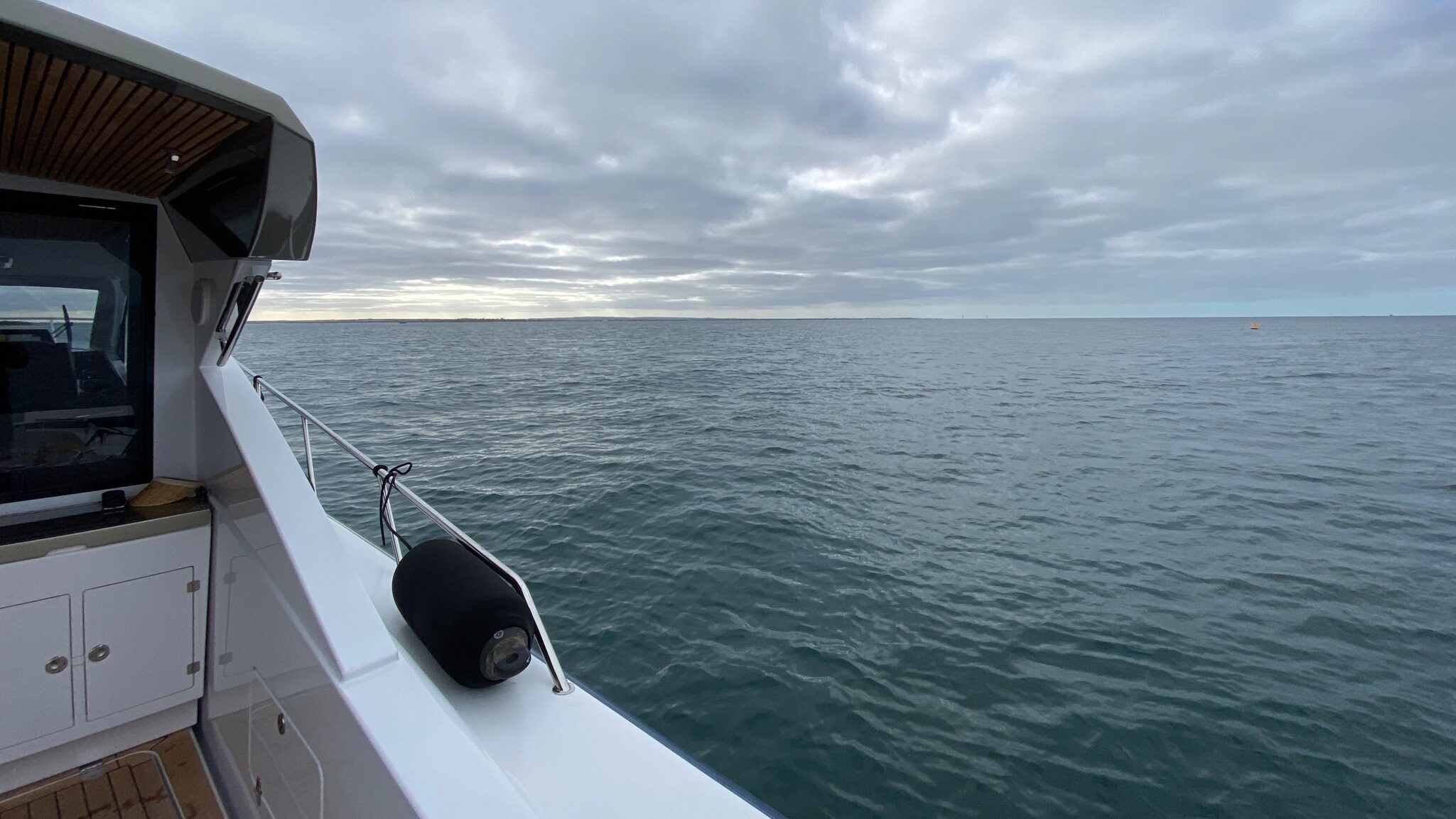Ned Talks - Boating Essentials Program
About Boating Essentials Program
Boating Lessons and Boating Safety Course
Our Boating Essentials Program includes comprehensive boating lessons designed to cover all the fundamental boating skills you need. This includes a boating safety course to ensure you are well-prepared for any situation on the water.
It is a three-day program designed to not only help you learn to drive a boat but also to familiarise you with your boat and the basics of boating. It is a boating class for beginners and intermediate boaters.
Vessel Familiarisation – Part of Your Boating Lessons
Firstly, we get on board go through the boat with you as if you had never stepped on board before.
It is really important that you have a basic familiarity with your vessel. Most of your servicing and repairs will be done via an external contractor (unless you are very hands-on), but there are fundamental things that you, as the skipper, will need to know and check every time you are on your boat, so we include this in our boating lessons.

Common Misconception Effecting Boating Safety
Now – we understand that most people compare boat ownership to car ownership – and as such they know you don’t need to check your car oil and water every time you take it out.
This may be correct – however, there are some vital things to check on a boat EVERY TIME, before EVERY JOURNEY. For example – you do need to check your seawater filters are clear and free, because if they aren’t, then the vessel can overheat, and then you will have problems when you are out on the water – which makes getting back to land difficult.
The other thing to consider as being different from running a car, is that if your car breaks down, generally you can walk to your nearest bus stop or just call a cab. The situation is very different when you are out on the Bay or open water.
So, familiarisation with all systems that pertain to safe operation is our first priority –it is better not to learn these boating lessons through trial and error.
Minimum Checks for Boating Safety
We go through and look at all the minimum checks that need to be done, which are the safety and mechanical pre-start checks, in order to get the boat ready to go.
The most obvious part of these boating lessons are the engine, battery, and systems (GPS, navigation, and radio) checks. These are the most obvious.
Then, something less obvious is getting you to look around your boat to ensure there are no sticks, lines, or debris around the boat that may have been caught between the boat and the marina. Also, have a look at all the lines currently on the boat. Are they set up well? Do they need to be redone?
The aim with the lines is to ensure that they hold the boat securely in the pen, with enough room to move, but without the risk of hitting anything (including the dock) during high winds.
Boating Lessons – Vessel Startup
We then take the owners through vessel startup – showing them a specific series of steps to follow for start up, which will then become their start up procedure. We use and provide a logbook with all of these steps – so that nothing ever needs to be forgotten.
Boat Handling & Local Area Knowledge
We will cover local area knowledge, which in the Boating Essentials Course is all about familiarity with the marina you are in, knowledge about where the fuel bowsers are, and where the pump-out station is. Additionally, we will go over any areas directly around the marina that you need to be aware of so as not to run aground or get into trouble.
In this section of the course, we will go through a full procedure for refuelling. This is important as refuelling a boat can go very wrong, and for the safety of you and your family and friends, it is important to understand best practices around refuelling.
Boat Handling & Manoeuvring
The lion’s share of the program is spent handling and manoeuvring the vessel. We aim to get you to a point where you can manoeuvre your boat confidently and calmly both outside of the marina and within the confines of the marina (which is usually the most nerve-wracking part).
Docking Skills & Boating Safety
How to Dock a Boat
We also spend a good amount of time on how to dock a boat, specifically docking from the boat without jumping off onto the marina.
Many of the boats are large and have a high freeboard (which means there is a lot of volume above the water), making jumping off them onto the marina very dangerous. All too often, I see people do this as a method of attaching the lines to the marina cleats, but this is unnecessary. They will jump off and on the boat many times as they attach lines, and all that needs to happen is one slip, and they are in the water behind a boat with its propellers running!
Our aim is to get you and your family (be it a husband and wife team and/or kids) to work as a team and practice coming into the marina pen and docking your boat with as minimal fuss as possible. We will teach you to use lines and spring lines whilst standing on the boat.
We teach you how to dock a boat using a method which is all about docking calmly, at walking pace, without yelling, screaming, or extra stress.
It provides you with calm confidence in your ability to get your boat in the pen and secure it so it is safe to disembark.
Docking your boat can become an exciting challenge, providing as much joy as being out on the water. And the sooner you reach this level in your boating skills, the more time you will find to spend on your boat.
We have found that the fear of docking can really take the edge off the whole boating experience, and our job is to help you overcome that but providing this boating skills training centred around how to dock a boat.
Additionally, we will go over how to use the prevailing winds to assist you with docking your boat, and even how to hold station outside of your pen, so that if you need to do this, you can.
Once we have docked your boat for the last time and are safely snuggled back into the pen, it is time to ask questions and pick our brains for any information that you need. These questions can be about any of the systems on your boat, from the toilets to the aircon units, as well as down in the bilge.
In this section, we will also cover basic troubleshooting things you need to know.
We should emphasise here that there is no such thing as a silly question. The question that you didn’t ask because you were too embarrassed could be the thing that brings you unstuck at a critical time.
Learning to drive a boat can be nerve racking – but with the right boating skills training you can become confident with how to dock a boat.
BOATING SERVICES

Boating Instruction
Boat handling courses so you can boat with confidence.

Skipper Services
Hire a skipper and relax with family and friends.

Purchase Advice
Find the ideal balance and boat for you

Boat Restoration & Project Management
From minor repairs to major works
